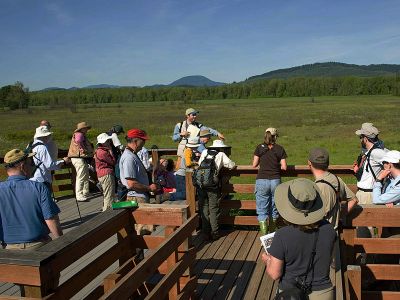We all use social
networks on our private or professional lives. But how many people in
our networks are really relevant to us? How can we identify the best
person to talk to on a given subject? How can we rapidly connect and
network with this person? This was an aspect of the EU’s
three-and-a-half-year SOCIETIES
project: to create so-called Community Smart Spaces (CSS) where members
with highly-focused interests can connect, physically meet up, share
problems and resources, trying together to find solutions in just about
any area of life.
EU LEADS WAY IN ‘INTERNET OF THINGS’ RESEARCH
SOCIETIES researchers have been working on pervasive computing – known as the Internet of Things - for over a decade now. An earlier EU ICT research project, PERSIST
, looked at personal smart spaces and how individuals could connect to
technology in their homes and offices through one device. ‘The obvious
problem is, what happens when one or more personal smart spaces get
together? That led us down the route of Community Smart Spaces and into
the SOCIETIES project,’ explained coordinator Kevin Doolin , of Waterford Institute of Technology’s Telecommunications Software and Systems Group ((TSSG) in Ireland.
The partners set about building a platform for matching people,
resources and services, and discovered innovative areas where they could
help users network in a more focused and private way. They identified
eight of these as core innovations: Learning (about users); Preferences
(specialized community templates); User Intent (helping users achieve
their goals); Community Orchestration (identifying who and what are
relevant); Community Context (benefiting from crowd ‘wisdom’); Location
(pinpointing who’s nearby); Trust (stricter filtering mechanisms);
Privacy (integrating privacy into software development, rather than
adding it on later).
Three user groups were chosen to trial services based on the innovations. For example, computer students at Heriot-Watt University
in Edinburgh tested individual Personal Agenda and MyTV apps and the
lecturer-questioning AskFree. Then, on a group basis, they participated
in Browsing ‘races’, collaborative quiz games and organized meet-ups
using a location app based on ‘geo-fencing’. The SOCIETIES platform was
found to be robust and reliable in use, with very little downtime, and
able to respond to the inventiveness of the students, running multiple
services simultaneously with multiple users.
In another trial, researchers took SOCIETIES to the European
Commission’s 4000-strong ICT 2013 conference in Vilnius, Lithuania, and
tried out Relevance , a
conference schedule, planner and networking app, customizing it for the
event. “Relevance” leveraged the Community Orchestration innovation,
using project algorithms and user-defined keywords to enable
participants to decide which presentations to attend and find people
they wanted to meet in the ”geo-fenced” environment. The feedback from
users at the conference was that there was a significant interest in
having an application which reduces “social clutter”. Indeed, six other
conference organizers present expressed an interest in having such an
app at their events, too. This led to a company, Fuseami Ltd. being spun
off from the project to exploit the potential. .
A third trial involved rescue workers in a forest fire simulation in
Germany. They wore ‘iJackets’ to connect with one another and a remote
disaster management center.
SOCIETIES PROJECT SPIN-OFF LAUNCHES IN IRELAND
Fuseami is
launching its conference networking app based on ‘Relevance’ in November
2014. The app is based on intelligent professional profile matching.
Its core innovation is a Relevance Orchestration Engine, which fuses a
number of complex algorithms to provide each user with a similarity
score for each potential connection, taking into account education, job
title, areas of interest and key words based on who you would like to
meet. TSSG says the app will allow users to ‘discover, connect and
engage with relevant business contacts.’
‘The whole idea is to cut through all the social media clutter and
allow people, if they go to an event or any location, to log into the
Fuseami app, via LinkedIn, and find people relevant to them,’ explained
Kevin. ‘It’s not going to go out and find your friends; the idea is to
find people you don’t already know. It’s about making networking
relevant.’
The SOCIETIES platform contains a wealth of architecture
descriptions, context management systems, privacy controls, and other
specifications which are available to any developer, on a whole or
module basis, by downloading from: http://www.ict-societies.eu/open-source/
SOCIETIES, consisting of 15 partners in 10 countries, ran from
October 2010 to April 2014 and received 10.6 million euros of funding
from FP7.
Link to project's website
Other links
Societies Platform
Fuseami
 EN
EN  CS
CS DE
DE ES
ES FR
FR HU
HU IT
IT PL
PL PT
PT РУ
РУ SK
SK TR
TR УК
УК AR
AR 中文
中文







